Editor’s note: This is a recurring post, regularly updated with new information.
Many people assume traveling is prohibitively expensive. But there are ways to save money while exploring new places — and regardless of how much money you save up for a trip, it’s possible to stretch your budget further than you think with some strategic planning.
Budget travel may invoke images of camping, taking buses and staying in hostels, but you don’t have to sleep outside (or on an overnight bus) to save money. Don’t let misconceptions about budget travel dissuade you from hitting the road. Here’s why.
Luxury travel is possible
I’ve traveled on a budget for about 14 years, during which my trips have taken many different forms.
On the least expensive end, my lodging has included nights in hostels and even tents at state parks and music festivals. But more typically, I save money by staying at inexpensive hotels that participate in major hotel loyalty programs. For example, when I started traveling full-time as a digital nomad, I discovered that limited-service hotel brands like Holiday Inn Express provided the right mix of affordability and a good working environment.
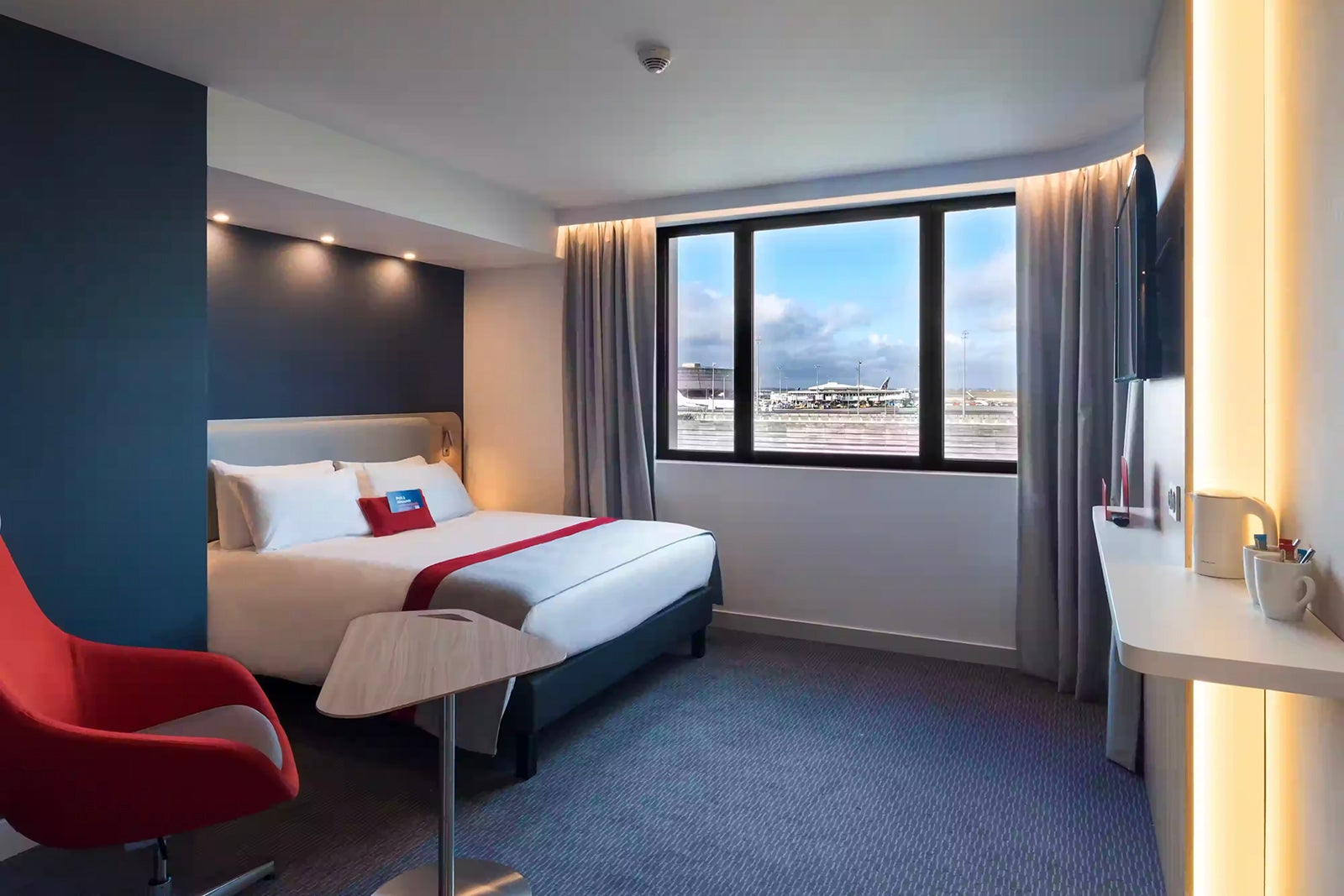
I also sometimes redeem points for aspirational hotel stays and splurge on a few good-value hotels through Amex’s Fine Hotels + Resorts program each year. A few years ago, I got $160 of food and beverages included on a $153 stay at the Loews Chicago Hotel.
I’ve taken my share of buses and trains — including an overnight bus in Turkey that broke down countless times along mountainous roads, a memorable trans-Mongolian train in second class and a 45-hour journey in an Amtrak Roomette — and flown many budget airlines. But by booking inexpensive mistake fares and redeeming points and miles, I’ve also enjoyed many premium cabin experiences for a fraction of their standard fare.
All this proves that budget travel can encompass camping, hostels, hitchhiking and buses. But depending on your priorities and budget, you might not need to choose the least expensive option or skimp on every aspect of your travel. Instead, budget travel is often about deciding how to spend a set amount of money you’ve set aside for your trip. Even if you don’t have a set budget for a trip, you can still minimize your expenses and get good value.
Related: Is it cheaper to fly or drive when traveling on a budget?
Budget travel is a choice
For some people, sticking to a budget is an important part of planning a trip. But for many people, regardless of their budget, there’s nothing more satisfying than getting great value.
I often choose budget travel even when I don’t have to. While I haven’t stayed in a hostel dormitory since 2017 and now pay to fly instead of taking extended bus journeys, I still work to limit my expenses. For example, I usually stay at one of the least expensive hotels I can find that participates in one of my primary hotel loyalty programs. And when I can snag an off-peak Category 1 Hyatt hotel for 3,500 points per night, I’ll usually do so even if the location isn’t ideal.
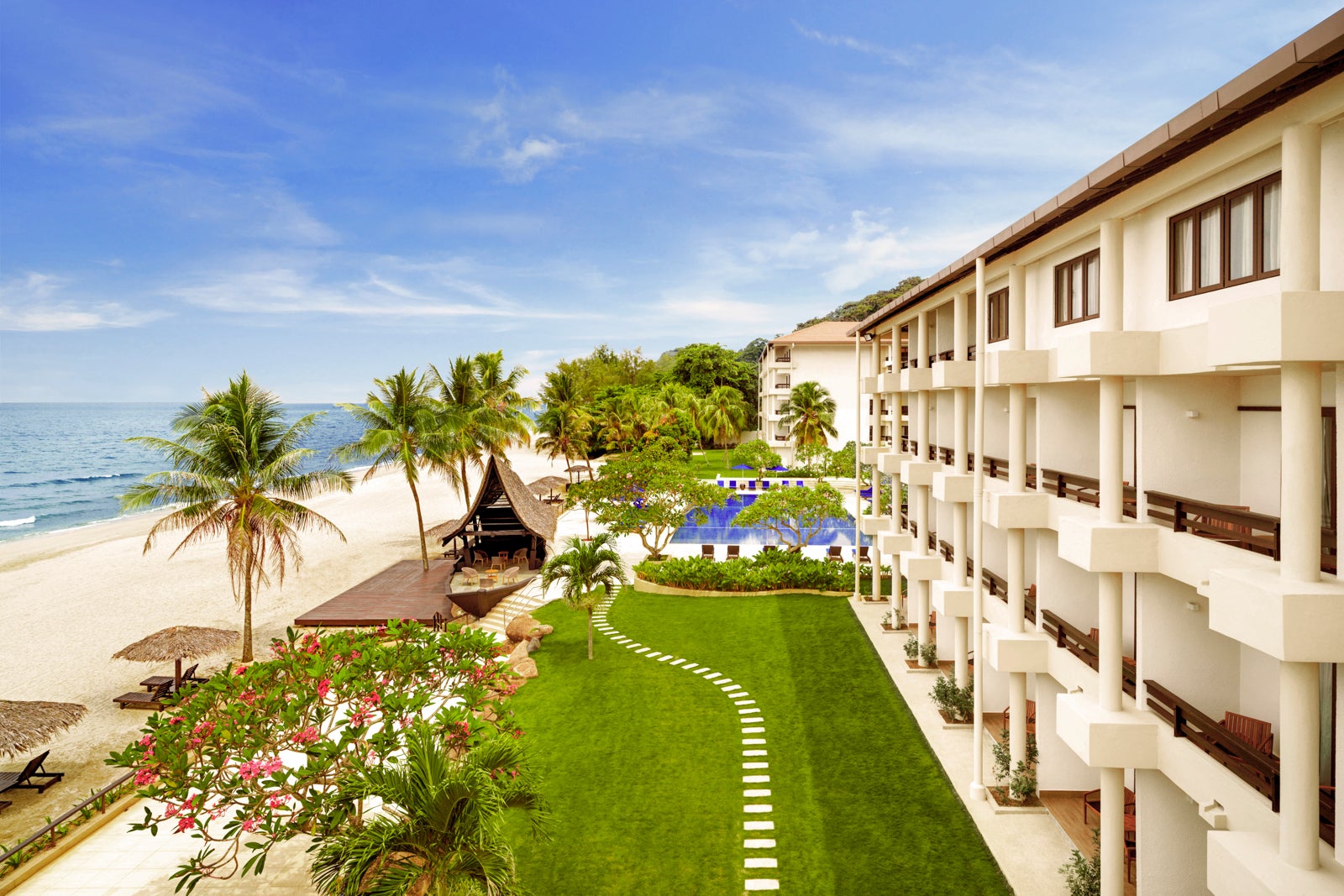
I always check public transit options and strive to use public transport when it’s efficient and less expensive than a taxi or ride-hailing service. I also typically opt for inexpensive local cafes and restaurants (both for cost savings and the experience). One of my favorite travel activities is simply walking through neighborhoods, which happens to be free.
Related: How to travel on a budget: Here are our 22 top tips
You can still visit luxury destinations
The most limiting factor to visiting some destinations on a budget is the cost of flights. Luckily, if you’re patient, you can usually find cheap airfare. And if you collect airline miles or transferable points, you can book an award flight.
Of course, you’ll also need to consider expenses once you arrive. But, even destinations typically known for their high prices and upscale hotels can be feasible for budget travelers.
After all, you can often save money by eating at local restaurants or grocery stores. And if you stay at a local guest house, the owners may arrange budget-friendly activities. For example, in Maupiti, French Polynesia, I paid my guest house around $40 to go with a few other guests in the family’s boat for perhaps the best excursion I’ve ever done: swimming with manta rays.

You can find reasonably priced Airbnb listings, independent resorts and even hostels in places like French Polynesia and the Maldives that are known for ultra-luxury resorts. You can even use inexpensive ferries to get to some destinations in these island nations. And, if you want to add a night or two of luxury to your trip, you might be able to do so at a modest cost by redeeming hotel points or getting a hotel credit card with an annual free night.
Related: 5 times when traveling abroad might be cheaper than staying close to home
You can save money at upscale hotels
Upscale hotels aren’t out of the question, even when traveling on a budget. After all, you can find cheap luxury hotels in some destinations.
You can also redeem hotel points to stay at upscale hotels. For example, World of Hyatt has many appealing Category 1 hotels, including the Park Hyatt Chennai and the Hyatt Regency Kuantan Resort, that you can book for 3,500 to 6,500 points per night. You can transfer Ultimate Rewards points, the currency earned by cards like the Chase Sapphire Preferred® Card and the Chase Sapphire Reserve®, to Hyatt to book these low-category gems.
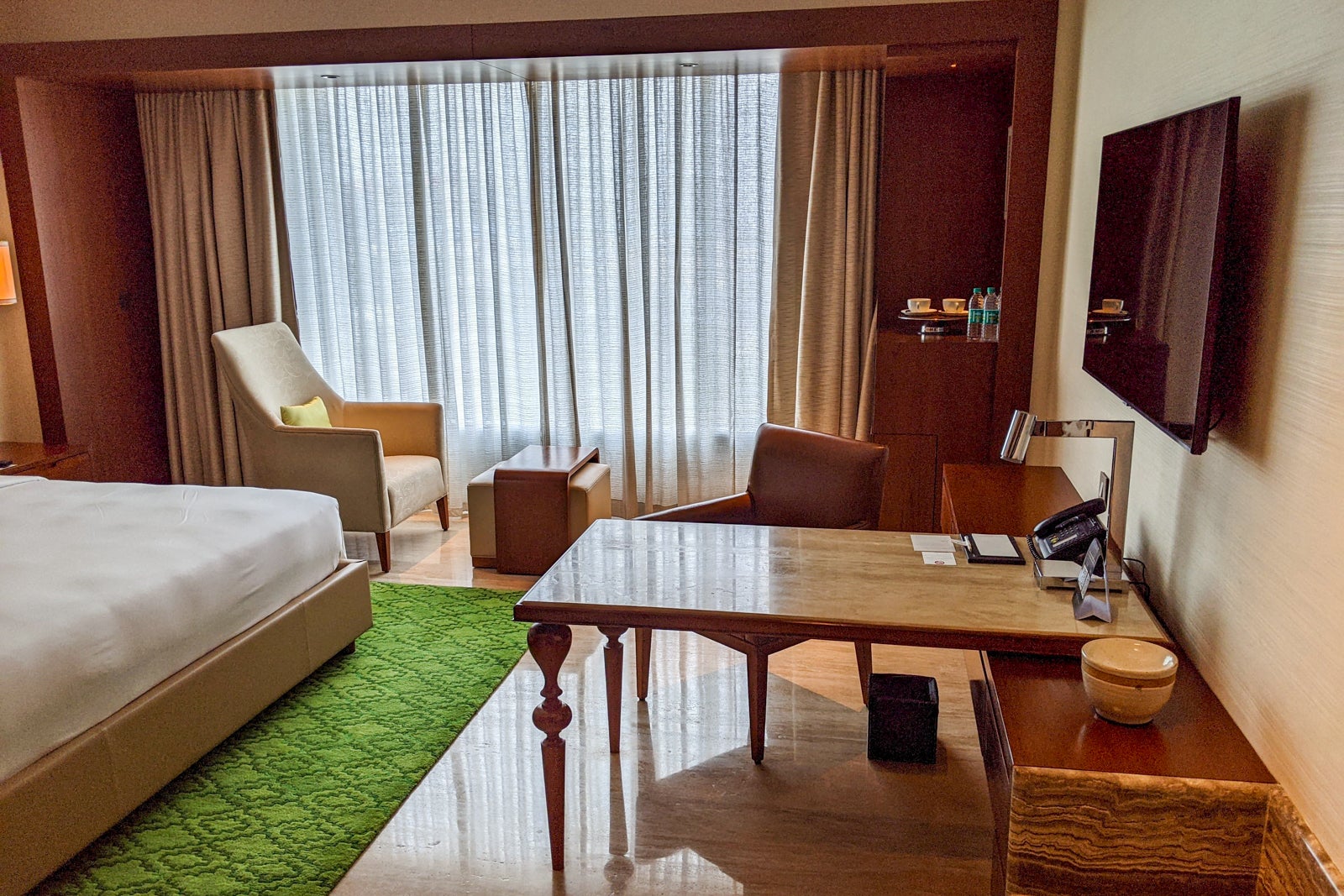
Budget travelers can also unlock upscale hotel experiences using the annual free night certificates that are a perk of select hotel credit cards. For example, the Marriott Bonvoy Boundless® Credit Card gives cardholders a 35,000-point free night award each year after their account anniversary, and the World of Hyatt Credit Card offers a Category 1-4 certificate after each cardmember anniversary.
All this to say: If staying at upscale hotels is your priority, don’t automatically assume you can’t do so when traveling on a budget.
Related: Book low-end or luxury hotels to get the best value from your points
You don’t have to fly budget airlines
Budget travelers may assume they can only afford to fly budget airlines. But, especially since many full-service airlines now offer basic economy fares, you may find the best price is actually on a full-service airline. Just understand what’s included in your fare and account for extra costs (such as baggage and seat selection fees).

If you plan to check a bag, signing up for an airline credit card may make sense before your trip. After all, some credit cards offer free checked bags as a benefit. For example, the Delta SkyMiles® Gold American Express Card has a $0 introductory annual fee for the first year, then $150 (see rates and fees). However, the card offers a benefit that can provide significant value to some travelers: A first checked bag free for the cardholder and up to eight other companions on the same reservation.
You can also use an aggregator like Google Flights to compare fares before booking. Especially if you have flexible dates or are even flexible regarding your destination, you may be able to snag a good deal.
Related: How to use credit cards to defeat Basic Economy
Airport lounges can save you money
Airport lounges can provide a lot of value, especially for budget travelers. After all, airport lounges are a great place to get a snack — or even a light meal if money is tight — and a drink.
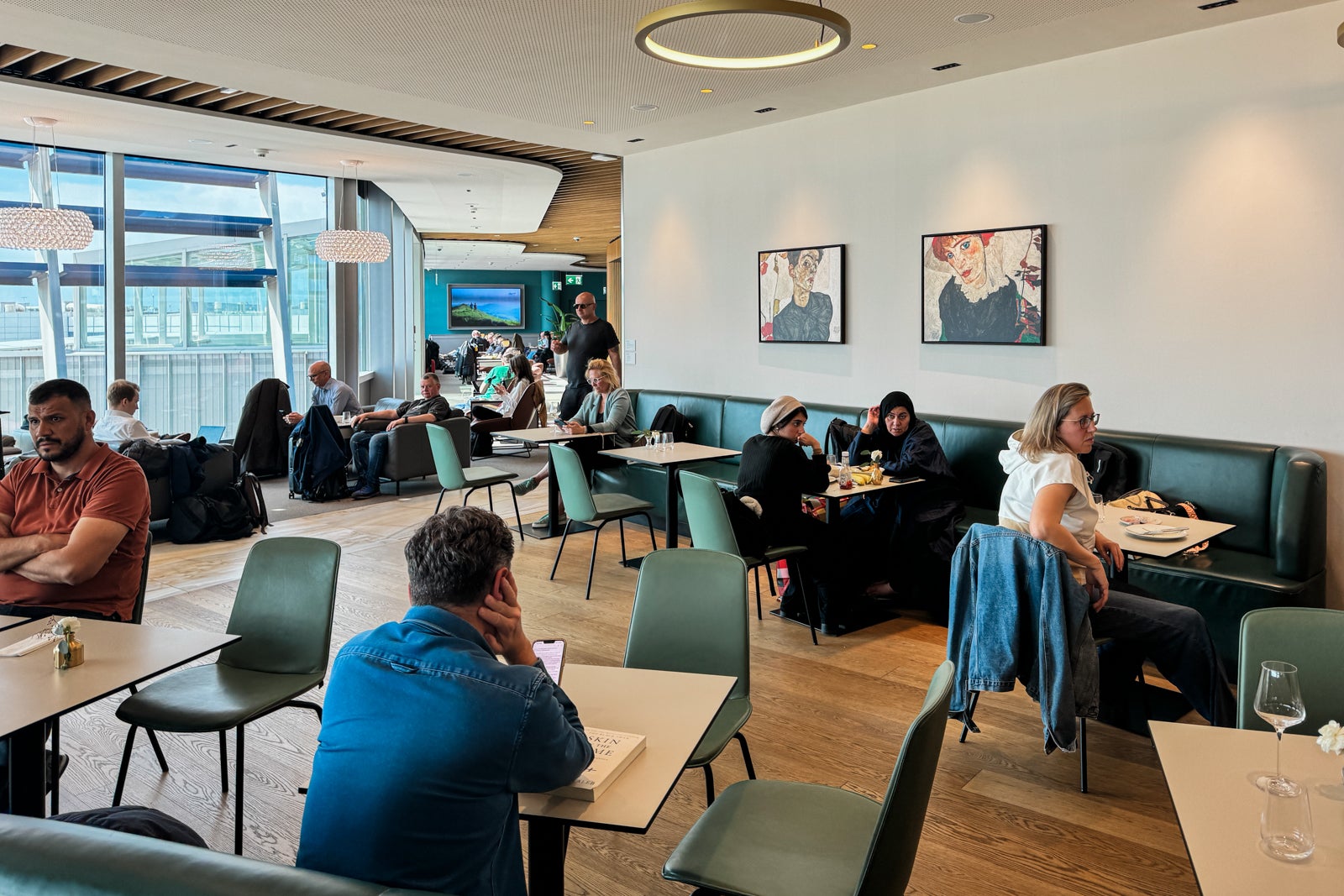
Travelers on a budget can potentially benefit from airport lounges even more than the average traveler. For example, budget travelers who sleep overnight at the airport might enjoy showering in the lounge before boarding their flight.
Luckily, getting airport lounge access through a credit card is relatively easy. Consider whether your home airport or airports you frequently transit have a Chase Sapphire Lounge, Centurion Lounge or Capital One Lounge. But, for many international travelers on a budget, having a Priority Pass Select membership or LoungeBuddy credits may be much more valuable.
Related: 5 ways to ensure you have lounge access before your next flight
You can get value from premium travel rewards cards
Don’t assume premium travel rewards cards aren’t for budget travelers. If Hilton hotels are in your budget, for example, you may get value from adding the Hilton Honors American Express Aspire Card to your wallet.
Yes, the Hilton Aspire’s $550 annual fee can be challenging to accept. But you may see the value once you consider the card’s many perks (such as top-tier Hilton Honors Diamond status and one complimentary reward night each year). The Hilton Aspire also has the following statement credits that can provide more than the card’s annual fee in value each year:
- $400 Hilton resort credit: Receive up to a total of $200 in statement credits semi-annually (January through June and July through December) for up to $400 back annually for eligible purchases made directly with participating Hilton resorts using your Hilton Aspire card
- $200 flight credit: Receive up to a total of $50 in statement credits each calendar quarter (January through March, April through June, July through September, and October through December) for up to $200 annually for eligible purchases of airfare made directly with an airline or through amextravel.com with your Hilton Aspire card
- $189 Clear Plus credit: Earn up to $189 in statement credits per calendar year when you use your Hilton Aspire card to pay for an annual Clear Plus membership
The information for the Hilton Aspire card has been collected independently by The Points Guy. The card details on this page have not been reviewed or provided by the card issuer.
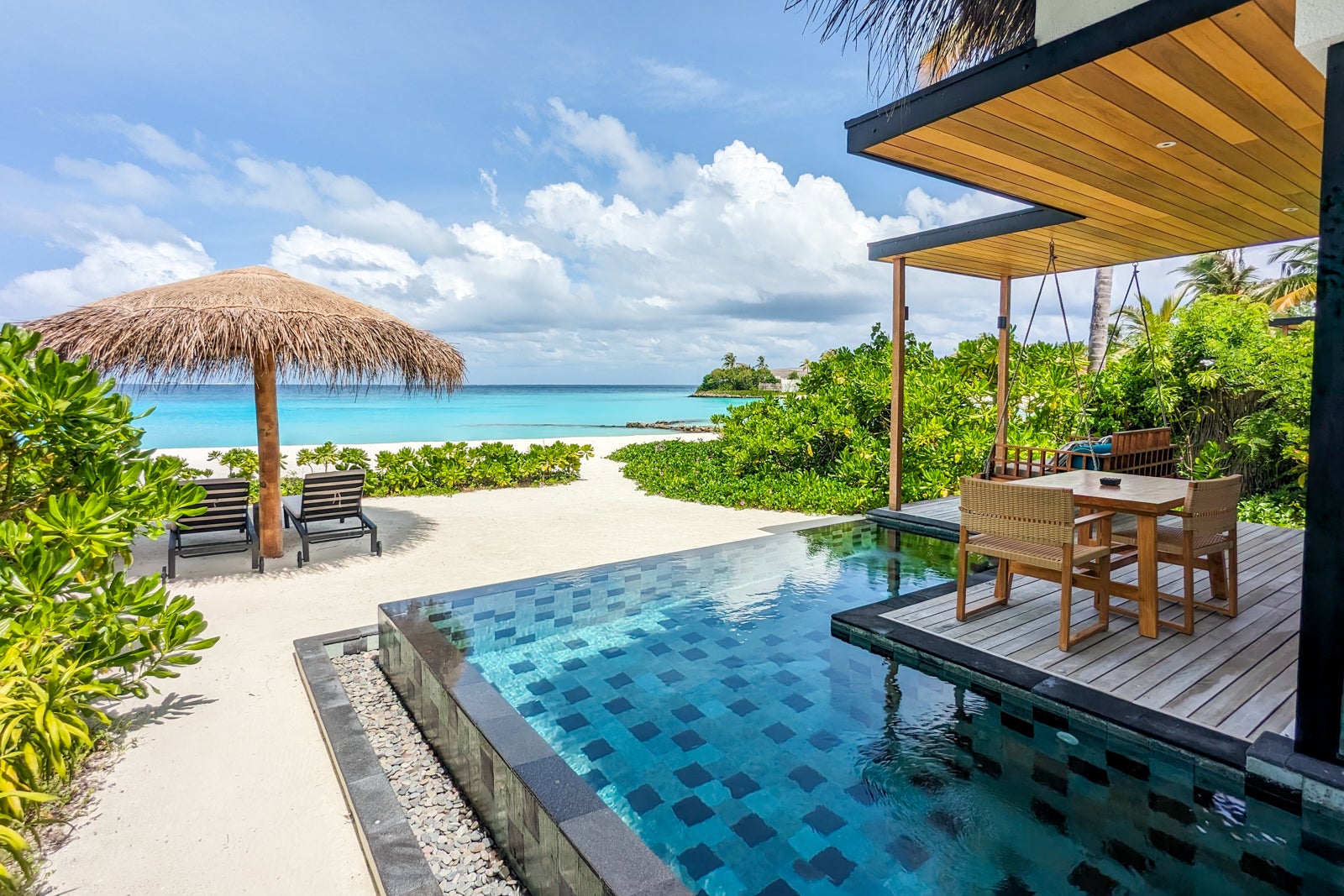
Of course, a premium travel rewards card won’t make sense for every traveler. So, it’s critical to consider how much value you’ll get from a card before signing up.
Related: How to maximize the Hilton Amex Aspire Card
Mid-tier travel rewards cards are valuable
You may not need to pay a high annual fee for your desired perks. Indeed, many modestly priced cards also offer lounge access, free checked bags, free night certificates and help toward elite status. So, you may want to see if a cobranded card with your favorite airline or hotel would provide enough perks to justify the annual fee.
For example, consider the United℠ Explorer Card. This card has a $0 introductory annual fee for the first year, then $95 thereafter. Cardholders get two United Club one-time passes per account year, a free first-checked bag for the primary cardmember and a travel companion on the same reservation, priority boarding for the primary cardmember and companions traveling on the same reservation and 25% back on United inflight food, beverage and Wi-Fi purchases.
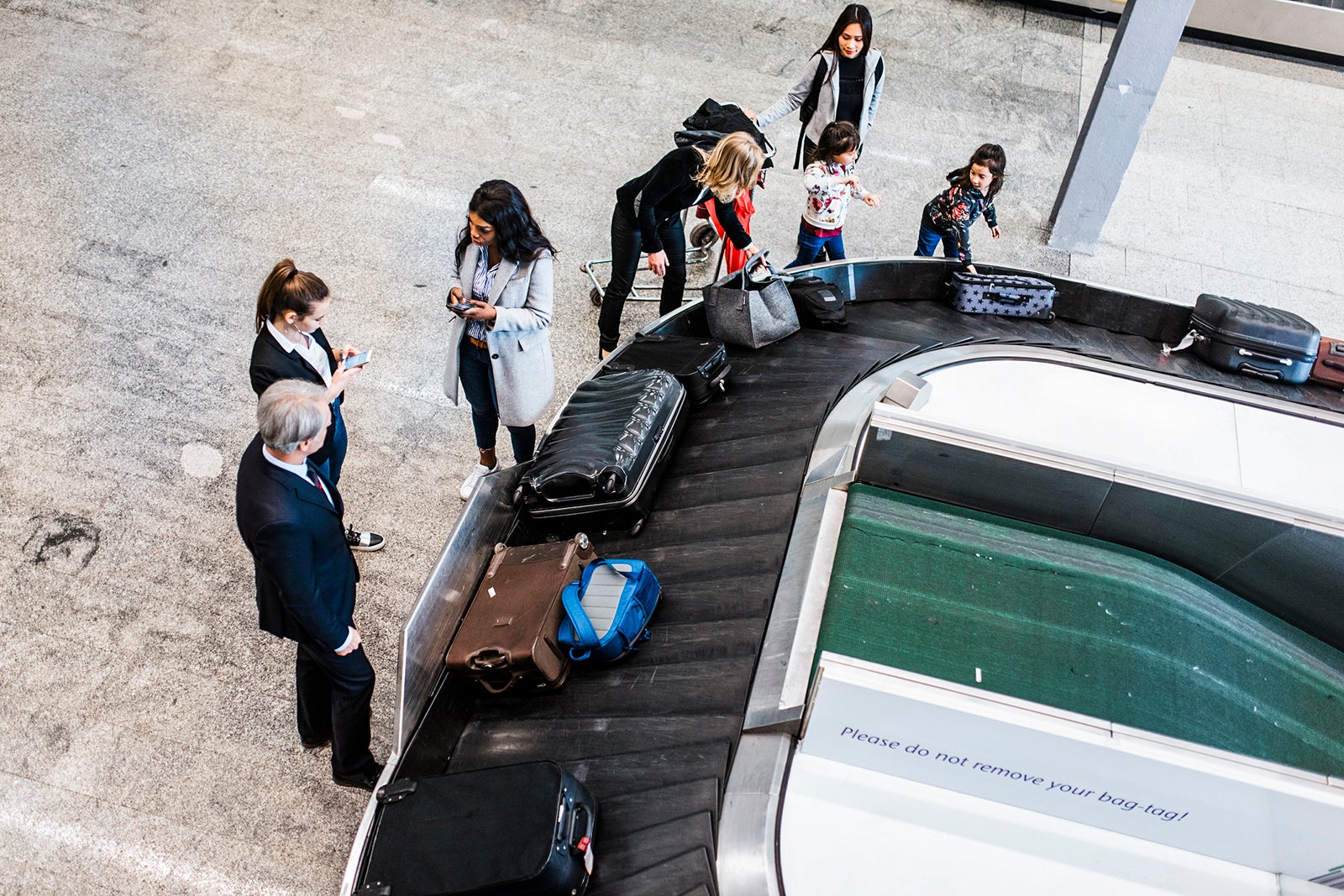
Or, consider the IHG One Rewards Premier Credit Card. This card has a $99 annual fee but gives cardmembers an anniversary night worth up to 40,000 points after each account anniversary. Primary cardmembers also enjoy automatic IHG One Rewards Platinum Elite status and access to the fourth reward night free perk when redeeming IHG points for stays of at least four nights.
Even if a cobranded hotel or airline card doesn’t make sense, you could consider a travel rewards card like the Chase Sapphire Preferred Card. I often recommend this card since it offers valuable travel protections and bonus earnings on travel and dining purchases in exchange for a modest $95 annual fee.
Related: Chase Sapphire Preferred vs. Citi Strata Premier: Which mid-tier travel card is better?
You can fly in premium cabins
Many budget travelers never dream of flying in business class or first class; they’d rather spend their hard-earned points or cash on more or longer trips. But, points and miles can unlock premium cabin experiences and, in some cases, the upcharge to book a business-class award instead of an economy-class award is worth paying.
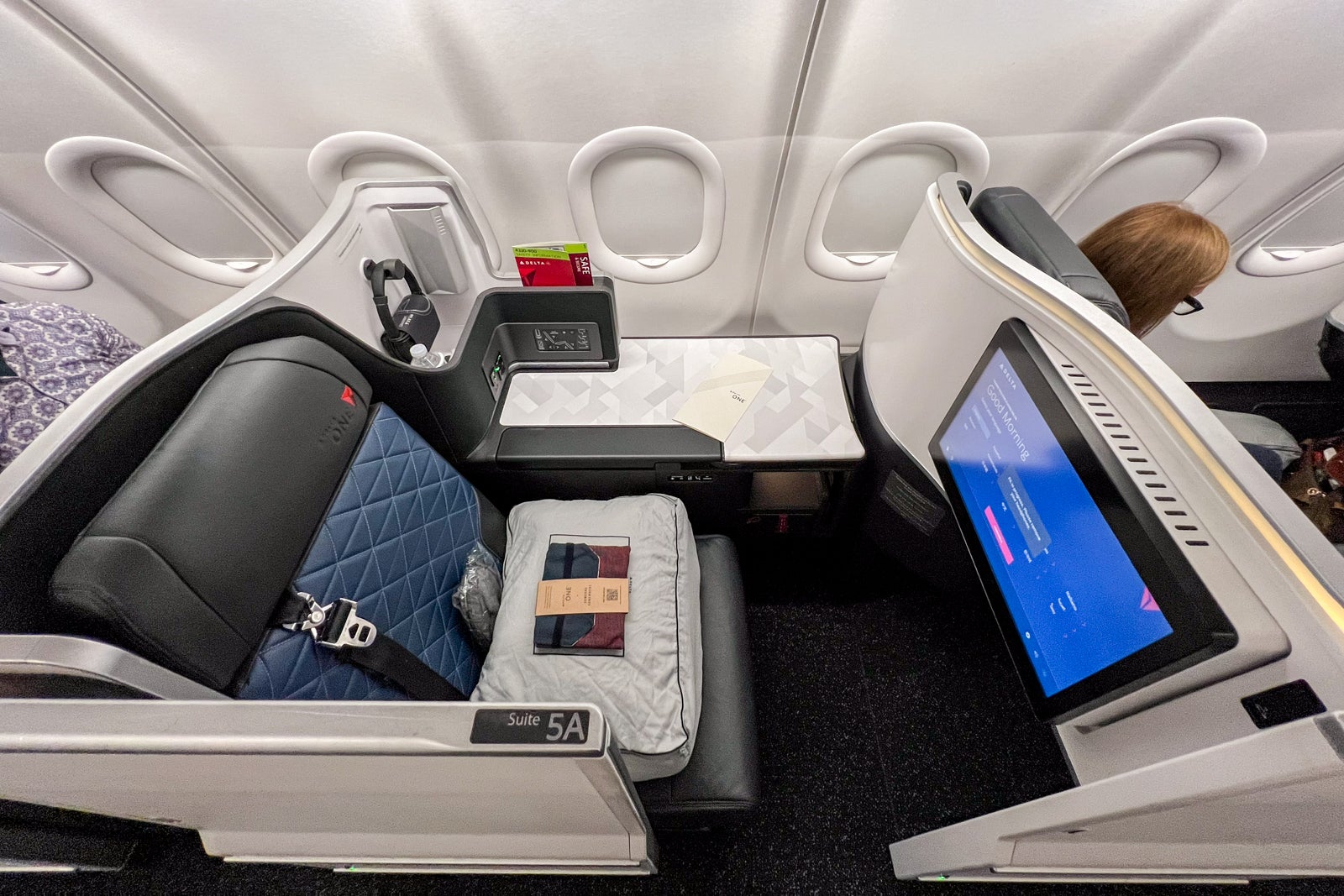
If you’re flying internationally, booking a business-class award may also provide access to some spectacular lounges. And if you plan to check multiple items, you may be able to decrease your checked bag fees by booking a premium cabin ticket. In short, consider the whole experience you could get when deciding whether to splurge.
Related: 7 of the best airline award chart sweet spots
Bottom line
Traveling on a budget will look different for each person. But if you’re traveling on a tight budget or looking to save money, keeping the big picture in mind is important. By doing so, you can focus your funds on what matters most.
Consider your priorities and what will provide value to you when deciding where to skimp and where to splurge. By doing so, you’ll save money where you can and spend money on things that will bring you the most enjoyment.
For rates and fees of the Delta Gold Amex, click here.




